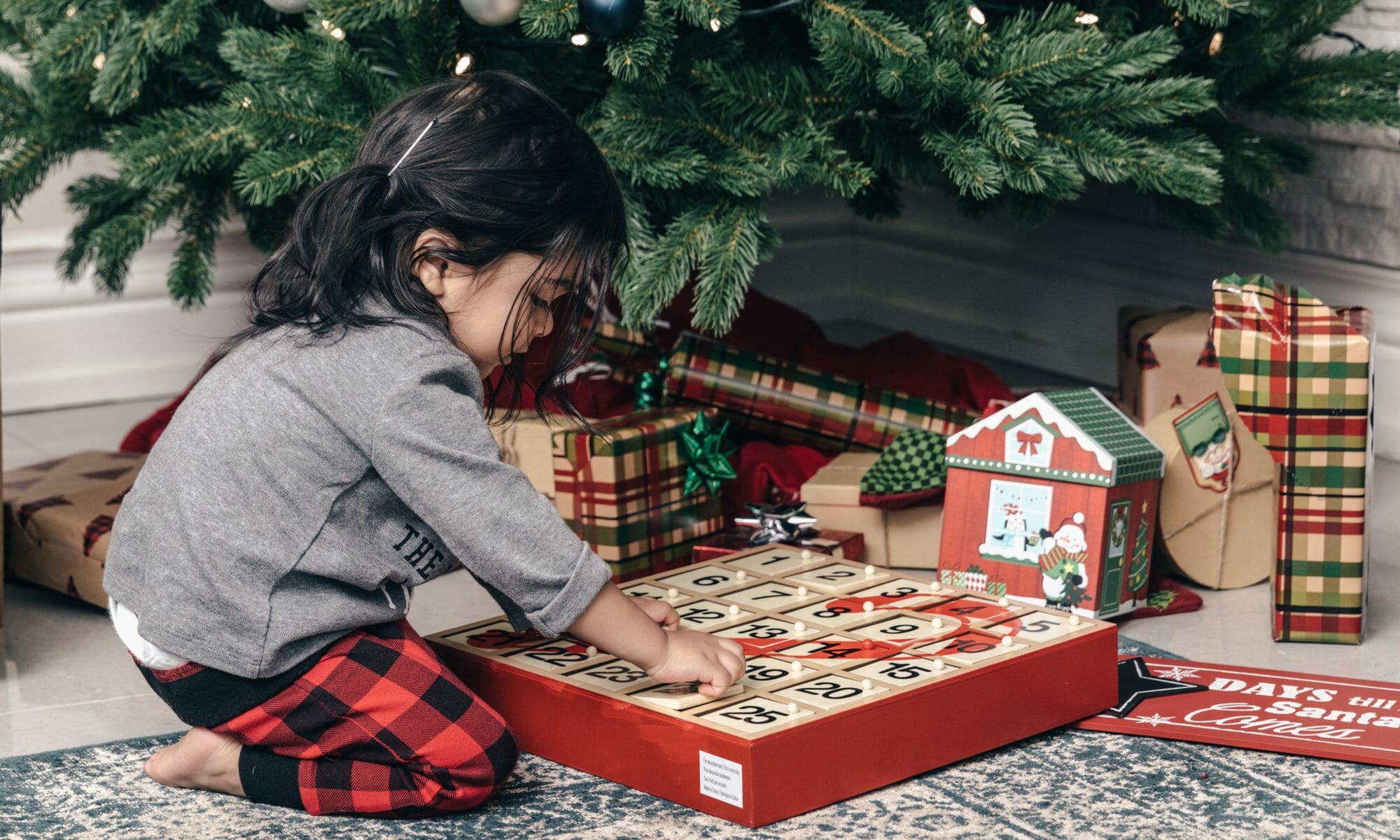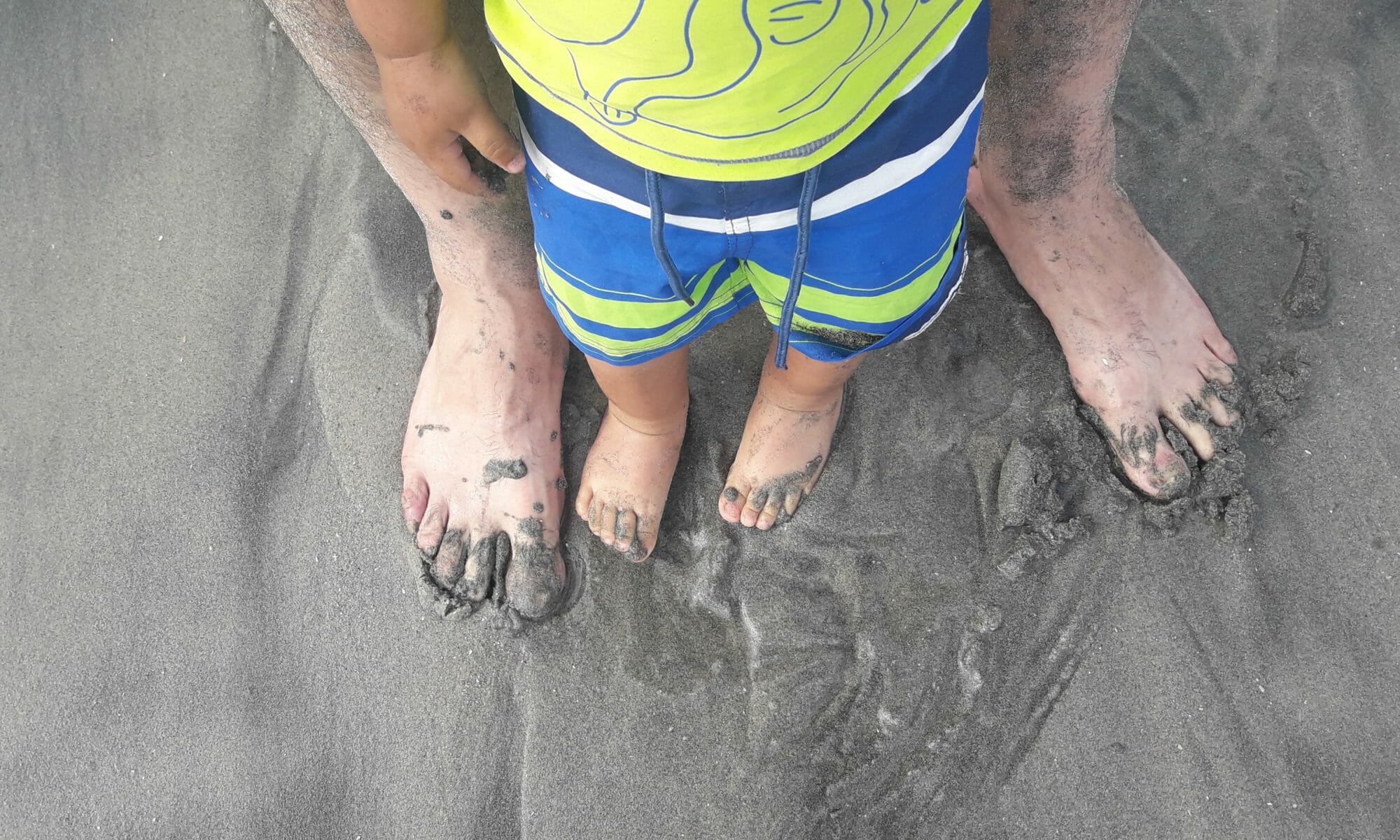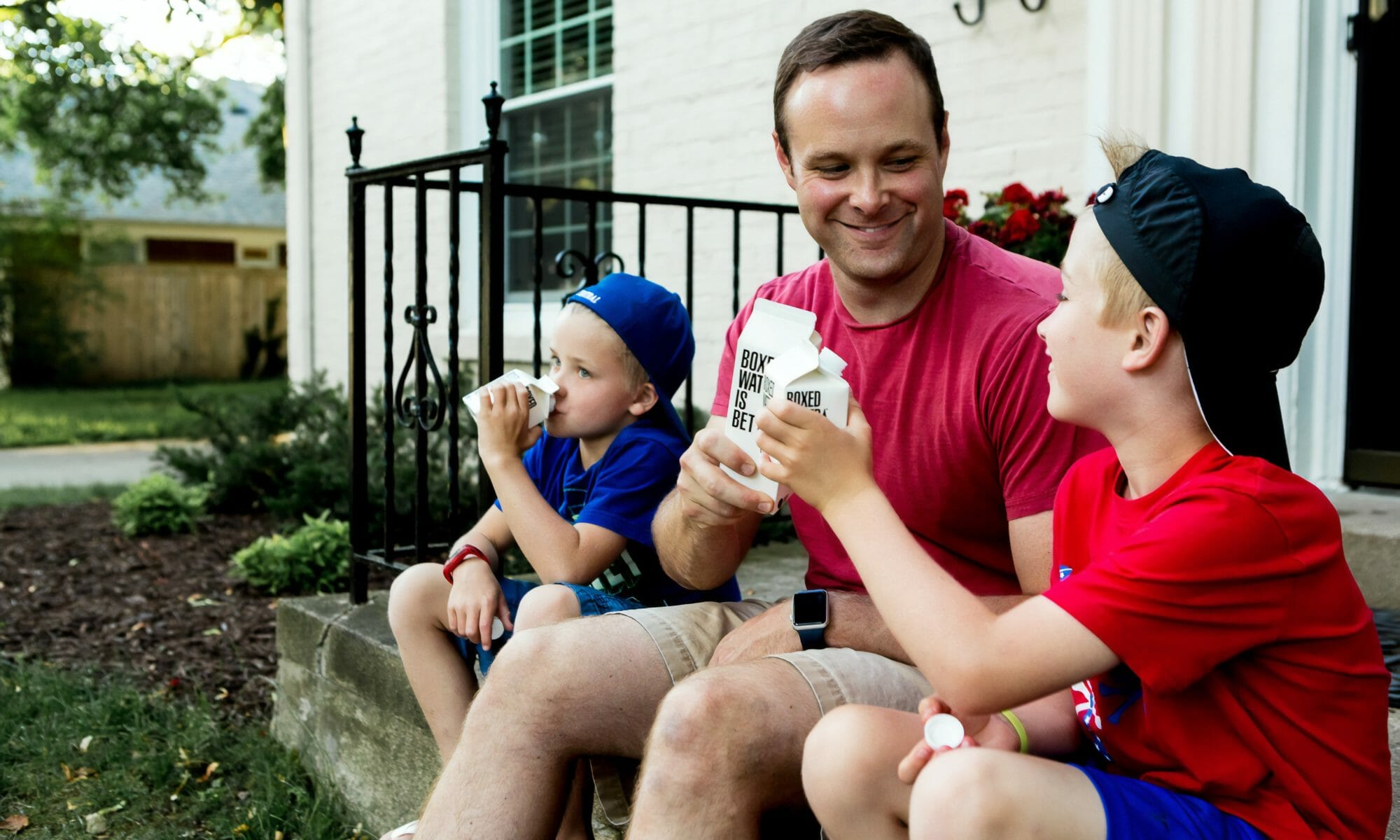Cooking With Kids: 3 Simple Recipes to Try
Sweet Smoothies
Crowd-Pleasing Pizzas
Easy Grilled Skewers
Travel Plans for Separated Parents: Navigating Holidays and Joint Custody
First: Consult the Experts
Next: Analyze Your Proposed Plans
Finally: Make an Appeal
Getting Along with Everyone in a Blended Family
Anyone can start a blended family. Actually getting everyone to blend is a bigger challenge.
When you become the spouse or partner of a parent, it’s entirely normal to feel a mix of emotions. You might be excited to have these kids in your life, and anxious about how to not step on the toes of their other parent. Maybe you’re worried about how to discipline the kids, or nervous they won’t get along with your family. Your top priority, though, is probably to form a loving and respectful relationship with the new kids in your life.
As one of the adults at the head of a new blended family, it’s up to you to nurture the relationships you have with your partner’s kids. A few simple strategies, and a lot of patience, will help you get there.
Set Clear Boundaries and Expectations
Kids need consistency and boundaries to feel safe and secure. Establishing boundaries will also protect you from having to make up rules and punishments on the fly, which creates tension.
First, talk to the other parent about the kind of household you want to create. Make a list of house rules that are important to both of you, and talk about what the consequences will be when someone breaks a rule. Next, bring the family together to talk about the rules. Give everyone a chance to talk. Ask kids to share the things they feel they need from you to feel safe and comfortable. Ideally, you’ll schedule regular family get-togethers so everyone has a chance to air any grievances rather than letting them fester.
Find Individual Bonding Experiences
To bring your entire blended family together, focus on strengthening the individual relationships between all of you. Find common activities or interests that you can share with each child. If one kid loves sports, buy season tickets for a local baseball or basketball team. If another is into reading, make a point to schedule weekly library trips for the two of you.
If you have kids of your own, encourage them to form individual relationships with their new step-siblings. Even if it’s just asking a pair of them to join you for a grocery-shopping trip, give them plenty of chances to spend one-on-one time together.
Find Time for Fun
Blending two households and establishing new dynamics is stressful! But if months go by and the kids don’t see you do anything but worry and talk about rules, they’re not going to be inclined to bond with you.
Find unexpected ways to inject some fun and laughter into your shared life. Announce a surprise beach trip one day, or decide that the first Saturday of every month will be a family fun day. Play silly board games and ask kids to show you their favorite funny movies.
Give Kids Some Space
Kids had a whole life with their parent before you arrived on the scene. Part of forming a bonded blended family is showing each other respect for your individual pasts. So be careful to allow plenty of space and time for kids and your partner to have together. Encourage them to have meals alone and to take trips by themselves, to show the kids that you’re not trying to wedge yourself into their relationship.
It’s also important to not expect too much, too soon. Hopefully the kids will grow to love and trust you, and each other, but you can’t rush those things. It might take years to establish a really close and loving relationship. That’s worth the wait.
A happy Christmas with separated parents
Christmas is a special time for children and therefore for their parents too. This holiday, which traditionally involves the family unit, can be difficult for separated parents, especially when their children are not with them for Christmas. We have compiled a list of frequently asked questions by co-parents during the run-up to December 24 and solutions to some of them in order to revive the magic of Christmas for them in their own way.
Who will have custody of the children this year?
Divorced parents are often very fussy about compliance with childcare during the holiday season. To avoid a family crisis that would disturb children, it is better to update your custody calendar several months in advance. Sandrine says: ” My children will spend Christmas Eve and Christmas day with me and my family this year. It alternates every year with my ex-husband and I think it is very suitable for everyone because nobody feels cheated “. In all cases, do not ask children to choose which parent they want to spend Christmas with as this would undermine their sense of loyalty towards the excluded parent.
What gift will I give to my daughter or my son?
After a separation, you may feel guilty towards your children, or jealous towards the former spouse. Subsequently in some families, there is a competition for who can give the most expensive gift for Christmas. The relationship with the co-parent is not a competition and the child can quickly understand the mechanism and take advantage of this weakness to get what he or she wants. David explains: “My ex-wife does not have the same financial means as me, which creates some tension with the approach of Christmas or birthdays. After a few unfortunate episodes, we made an effort to consult each other before the holidays to prevent our daughter from being a witness to our differences. Sometimes we offer a bigger, common gift.”
Should I invite my ex to the party for the benefit of my children?
Why not, if you still share some affection . But it should not raise false hopes. A child can lose his bearings when his separated parents meet and give the impression of a family unit. Be careful too about the organizational nightmare that this can create with in step families: what about new family members and their children?
This is my first Christmas divorced with kids
Unconsciously or not, many separated parents are hit by nostalgia which can invade Christmas. Jean-François has become habituated to inviting his two teenagers to a restaurant with his new girlfriend: ” I found myself alone, desperate to organize a perfect Eve. It quickly turned into a culinary fiasco. Since then, I reserve a good restaurant, and on Christmas Eve we go out”. Martine has made a clean sweep of her former life: “It reminded me too much of old memories. I decided to change all the dishes, table decoration and especially the menu. Finish the game, and flash garlands”. Separation, it changes people. It is normal for family traditions to evolve to better match the new life of each. And if you feel better as well, the children will be the ones to benefit.
This is my first Christmas divorced without my children
Separated parents agree that this is a difficult moment to go through. “After a few years, one tends to become experienced” says Sandra, who found tricks to not spend Christmas alone. ” I made new friends who are mostly like me. We take the opportunity to meet on Christmas Eve and have a good time without getting depressed. I know my children are with their father so I do not let myself worry about them “. You have to reassure yourself: there will be other Christmases you’ll spend with the children and we have the whole year to spend with them. This is the moment to take care of yourself.
And you? Does this time of year particularly affect you after your separation? What are your experiences or your new Christmas traditions? Share your experiences here
Managing Life as a Single Parent after Divorce
When a divorced couple has children, life can get very complicated. Each parent is now on their own and suddenly realize all of the small things they did not notice when they had the other parent to back them up. Parents of babies and toddlers are tested by late nights and early mornings, with no one to alternate sleep, feedings, changing, and difficult nights with. Mothers and fathers of school aged children have to handle the morning routine: getting the kids to school, meeting with teachers, and driving the kids to after-school activities, all on their own. Managing life after divorce as a parent is not easy, but life will get back to normal much faster if steps are taken to deal with the challenges, instead of just hoping for a solution.
Struggles of Single Parents
Going through a divorce and living with divorce are very complicated life events which statistics show that many people in this country go through. Below are the two main challenges for single parents:
Childcare
This can be tricky one when the other parent doesn’t want to play nice. Developing a set schedule, if at all possible, for visitations will make it a little easier to figure out childcare. After visitation is established, each parent needs to find their own sitters or agree on one childcare or babysitter for both schedules. Both parents should have their own backup in case help bails at the last moment. This will keep the other parent from having to cancel their own plans to watch the children.
Divorce With Kids: How Do You Explain It to Them?
Perhaps one of the most challenging conversations you’ll have as a separating parent is with your children. Throughout their lives, you’ve made their wellbeing a priority. Coming to them with news of your breakup may be emotionally devastating. But regardless of how well you know your children, their reactions may still surprise you. Try to keep the conversation age-appropriate. Remind your children that their parents’ divorce does not mean the loss of their family.
Have the Conversation as a Family
Your children should all be part of the conversation. Try to sit down with your spouse and all of your kids at the same time to discuss the divorce. By presenting a united front with your spouse, you minimize tension and prevent feelings of resentment towards one parent or the other. You want to reassure your children the break up is not their fault and that they will remain loved. The feeling of togetherness of a group talk supports this idea that they are not losing the people closest to them.
Prepare Your Main Messages Beforehand
In the moment, you may forget to tell your children what they most need to hear. That’s why you and your spouse should jot down the key things you want to say. In part, this can be things such as, “we have tried to fix our problems, but it hasn’t worked,” “you will always be loved, now just in two houses instead of one,” “we are still a family even though we no longer live together” and “you didn’t do anything to cause this to happen.” You can introduce them to the 2houses site and explain how the family will remain connected.
Remain Aware of Your Child’s Concerns
The age of your children determines how they see the world. As a result, what worries them most will depend on their stage of development. A preschooler is still largely dependent on her parents and may need reassurance they will still be fed, cared for and played with. As kids get a bit older, they are more aware of their feelings. They may have important social connections outside the family, so they may be concerned about moving or going to a new school.
Listen Actively to Their Questions
The conversation should leave ample time for questions. You may have to encourage your children, whatever their age, to ask whatever is on their minds. These questions may provide greater insight into your children’s world and may bring up issues you have not yet resolved. Your children may ask anything from what caused the breakup to whether the siblings will still live together and where the pets will reside. Be honest, but don’t overwhelm children with too much information. Always circle back to key issues of support, comfort and reassurance regardless of the challenging questions.
Keep the Conversation Going
After you’ve told your children that you are going to divorce, there will be a transition period of many months. Depending on the circumstances, you and your spouse may continue to live together for a period of time or one spouse may move out immediately. It may be a while before co parenting schedules are finalized, placing additional uncertainty and stress on the children. Using 2houses, the family can start to work out the details of new schedules and find out what works for everyone.
Because these changes directly impact your children’s day-to-day lives, it’s essential to do what you can to maintain their stability. Make them feel safe and reassure them you are always available to talk about what’s going on. Together, you can ease into your new lives while helping your children maintain their emotional health. In an ideal world, all they need to worry about is growing up.
Co-parenting – 5 tips that make going back to school easier!
The summer break is over and going back to school can be stressful not only for children, but for parents who are separated too! Here are a few tips to make going back to school as smooth as possible…
1) Establish a regular routine
Everyone relaxes during the summer break – we don’t eat at regular times, go to bed late and are free to do as we please. Sophie Dierick, a teacher and separated mom of 2 teenagers, is convinced that “a lot of stress and conflicts could be avoided if parents were stricter on kids going back to school”. The first piece of advice is therefore to progressively regulate your child’s routine by, for example, bringing bedtime forward by 15 minutes every day in the week before they go back to school and suggesting some intellectual activities (reading, puzzles, etc.).
2) Plan your back-to-school expenses
Review the situation with your co-parent: what does your child need in both houses? Are there any shared expenses? Can anything be reused? Think outside the box: going back to school isn’t just about buying school stationery, but also renewing bus passes, sorting their wardrobe, replacing old trainers and even budgeting an allowance for school dinners. Avoid peak times when planning your purchases or, better still, buy everything online! Don’t forget to discuss your respective expenses as well as your views on how these should be allocated.
3) Find an extracurricular activity
Extracurricular activities, such as plays, music, sports and scouting, are vital in helping a child build their self-confidence and channel their energy. Find out in advance about activities in your area that your son or daughter would like. Add any subscription fees and doctor’s visits for medical certificates to your shared custody schedule.
4) Put their mind at ease by keeping things tidy
A tidy and well-stocked desk can also motivate your child to get back into the school mindset! If your child is old enough for homework, it is important to show them that you want to help them work comfortably by setting up a quiet area, away from any distractions. Having a tidy backpack in class will also reassure them. Our teacher can’t stress this enough: “On the first day back at school, children need to have all the necessary supplies. If they don’t, they will slow down the group and this will scare them, especially the little ones.”
5) Update your diaries
Doctors, coaches, the parents of their (new) best friend… Have you added all those handy telephone numbers to your address book? A shared diary for separated parents means this information can be accessed stress-free at any time!
Do you have any other tips for making going back to school easy for your child and co-parent? Share them in our comments section!
©2013, 2houses the co-parenting facilitator.
Helping your child through a divorce
Thousands of kids experience the stress of divorce each year. How they’ll react depends on their age, personality, and the particular circumstances of the separation and divorce process.
Every divorce will have an effect on the kids involved — and many times the initial reaction is one of shock, sadness, frustration, anger, or worry. But kids can also come out of it better able to cope with stress, and many become more flexible, tolerant young adults.
The most important things that both parents can do to help kids through this difficult time are:
- Keep visible conflict, heated discussions, and legal talk away from the kids.
- Minimize the disruptions to kids’ daily routines.
- Confine negativity and blame about each other to private therapy sessions or conversations with friends outside the home.
- Keep each parent involved in the kids’ lives.
Most adults going through separation and divorce need support — from friends, professionals, clergy, and family. Don’t seek support from your kids, even if they seem to want you to.
Breaking the News
As soon as you’re certain of your plans, talk to your kids about your decision to live apart. Although there’s no easy way to break the news, if possible have both parents present for this conversation. It’s important to try to leave feelings of anger, guilt, or blame out of it. Practice how you’re going to manage telling your kids so you don’t become upset or angry during the talk.
Although the discussion about divorce should be tailored to a child’s age, maturity, and temperament, be sure to convey one basic message: What happened is between mom and dad and is not the kids’ fault. Most kids will feel they are to blame even after parents have said that they are not. So it’s vital for parents to keep providing this reassurance.
Tell your kids that sometimes adults change the way they love each other or can’t agree on things and so they have to live apart. But remind them that kids and parents are tied together for life, by birth or adoption. Parents and kids often don’t agree on things, but that is part of the circle of life — parents and kids don’t stop loving each other or get divorced from each other.
Give kids enough information to prepare them for the upcoming changes in their lives. Try to answer their questions as truthfully as possible. Remember that kids don’t need to know all the reasons behind a divorce (especially if it involves blaming the other parent). It’s enough for them just to understand what will change in their daily routine, and — just as important — what will not.
With younger kids, it’s best to keep it simple. You might say something like: “Mom and dad are going to live in different houses so they don’t fight so much, but we both love you very much.”
Older kids and teens may be more in tune with what parents have been going through, and may have more questions based on what they’ve overheard and picked up on from conversations and fights.
Handling Kids’ Reactions
Tell kids who are upset about the news that you recognize and care about their feelings and reassure them that all of their upset feelings are perfectly OK and understandable. You might say: “I know this is very upsetting for you. Can we try to think of something that would make you feel better?” or “We both love you and are sorry that we have to live apart.”
Not all kids react right away. Let yours know that’s OK too, and there will be other times to talk when they’re ready. Some kids try to please their parents by acting as if everything is fine, or try to avoid any difficult feelings by denying that they feel any anger or sadness at the news. Sometimes stress comes out in other ways — at school, or with friends, or in changes to their appetite, behavior or sleep patterns.
Whether your kids express fear, worry, or relief about your separation and divorce, they’ll want to know how their own day-to-day lives might change.
Read more on Kidshealth.org
21 Blogs Sharing Techniques to Help You Talk to Your Child About Severe Weather
Severe weather is something that nearly every area of the country experiences, whether it’s a tornado, hurricane or a nor’easter. While these weather patterns can be unsettling, talking about what to do in the event that severe weather strikes and planning for how to handle it can help keep your family at ease. These 21 blog entries provide some guidance for talking to kids about severe weather without scaring them, preparing for severe weather and implementing practical tips you can use to keep your family safe.
Bad Weather Fears
According to Dr. Amador, psychologist, it’s important to discuss severe weather with your children to make sure they understand the truth about storms. When kids don’t know what to expect they tend to immediately start dreaming up the worst case scenario. Talking things through before they happen can help alleviate this so that everyone stays calm if and when severe weather strikes. These seven blog articles will help you talk to your kids about severe weather.
- Thunderphobia: Mayo Experts Offer Tips to Help Children Conquer Severe Weather Fears Here you’ll find advice from the doctors at the Mayo Clinic in Rochester, MN regarding how to help your kids overcome their fear of thunder and bad weather.
- Dr. Amador: Talking to Our Kids about the Oklahoma Tornado Tragedy This doctor feels that it’s important to talk about tornadoes with your kids, and she explains the best way to handle that conversation.
- 10 Tips for Talking to Kids about Severe Weather Read through this blog post to learn how you should best explain severe weather to your kids.
- 5 Tips to Help Your Child’s Severe Weather Fears—Parent Society Discover the best way to address your child’s questions about if bad weather will happen in your town.
- Talking to Kids about Tornadoes and Ways to Help Oklahoma Learn the answers to several pertinent questions that kids may have about tornadoes.
- Talking with Your Kids about the Tornado… This is a very moving article written by someone close to the tragedy in Oklahoma that contains good advice for talking to kids.
- Coping with Autism—6 Tips for Dealing with Uncertainty and Natural Disasters If you have an autistic child or know one, you should read this blog post.
How to Prepare
Preparing for severe weather as a family can provide reassurance that you have a plan that will keep your family safe. In these seven blog entries you will find suggestions on how to prepare for severe weather of all kinds.
- Josie Loza: Helping Kids Prepare for Bad Weather Suggestions to limit exposure to the news and get your kids to help you form an emergency plan can be found in this post.
- Severe Weather Preparedness Week: Talking About Preparedness with Kids Find information about the Red Cross’ Flat Stanley and Flat Stella program.
- Preparing Your Family for Severe Weather in Southeast Michigan You don’t have to live in Michigan to reap the benefits of this post, which reviews a helpful list of items for an emergency kit.
- Talk About Tornadoes: How to Prepare Your Family for Storm Season at Home or School Make sure you know your school’s emergency plan and that you have one in place at home.
- Severe Weather and Tornado Preparedness This blog article is about North Texas, but it lists important ways to be prepared that would be true for any situation.
- 10 Severe Weather Prep Tips From weather radios to food and blankets, this list includes it all.
- Moms Talk: Preparing Your Family for Severe Weather This post shares viewpoints from three moms on how they handle severe weather with their families.
Tips for Severe Weather
By going over safety tips with your child, he will get a better understanding of what positive things you can do to stay safe. These tips may also prompt your child to ask questions. Be sure to answer his questions in a calm and reassuring manner. The more prepared for a storm that you are, the better your child will be when severe weather strikes.
- Safety Tips for Severe Weather & Tornadoes Have a plan before the storm sirens go off so that everyone knows what to do.
- Severe Weather Tips Facts versus myths are shared on this blog article, along with other tips.
- Residents in the Path of Severe Weather Urged to Include Pets in Disaster Plans In this post, the Humane Society reminds everyone to take their pet into the safe room too.
- Tornado Expert Explains What to Do When Severe Weather Strikes Listen to a weather expert explain what you should do in a severe weather situation.
- Safety Tips for Severe Weather Take a look at this list of supplies that you should include in your safety bag.
- Tornado Preparedness Tips from Ready.gov After a storm, check for gas leaks and loose power lines to make sure your home is safe to stay in.
- Dauphin County Commissioners Offer Safety Tips for National Severe Weather Preparedness WeekThis blog article recommends having an emergency kit and gives other ways to stay safe during and after the storm.










